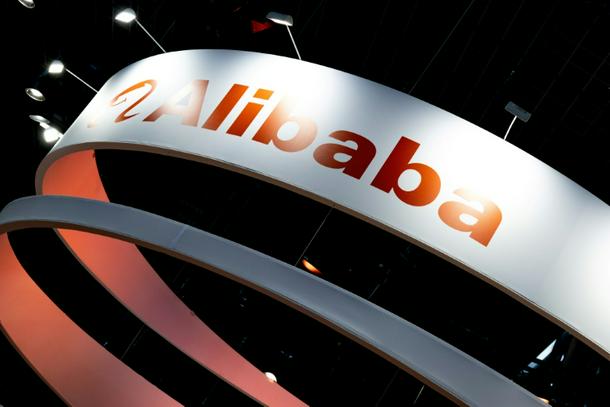
Alibaba is a key player in China's expansive digital economy and the operator of a major online shopping platform
Shanghai (AFP) - Chinese e-commerce giant Alibaba said Thursday it was cancelling a planned cloud service spinoff announced this year over US chip restrictions, as it reported results for the third quarter of 2023 that were in line with market expectations.
The announcement sent shares in Alibaba plummeting by as much as ten percent on Thursday, though it later traded at about eight percent lower.
Alibaba’s change of course follows a series of decisions by Washington to bar the export to China of powerful chips, including those from California-based Nvidia that are crucial to the development of artificial intelligence.
The Chinese giant’s AI endeavors, which require a huge amount of computing power, are largely dependent on its cloud division.
Alibaba saw a 9 percent year-on-year increase in Q3 revenue, it said Thursday, following several difficult years and despite a broader economic slowdown.
“Alibaba Group delivered a solid quarter, marked by renewed momentum and energy across multiple businesses as a result of our strategic reorganization,” CEO Eddie Wu said in a press release on Thursday, referring to a major restructuring plan announced by the group this year.
Announced in late March, the plan involved splitting the group into six distinct entities that will be able to separately pursue funding through public listings.
But on Thursday the company said it would call off the spinoff of one part of its business, its Cloud Intelligence arm, in light of “the recent expansion of US restrictions on export of advanced computing chips”.
“We believe that a full spin-off of Cloud Intelligence Group may not achieve the intended effect of shareholder value enhancement,” the company said in its earnings release.
“Accordingly, we have decided to not proceed with a full spin-off, and instead we will focus on developing a sustainable growth model for Cloud Intelligence Group under the fluid circumstances,” Alibaba said.
The company’s sales for the quarter ending in September came in at 224.8 billion yuan ($31 billion), in line with predictions by Bloomberg analysts and down from 234.1 billion yuan in the previous quarter.
Alibaba is a key player in China’s expansive digital economy and the operator of a major online shopping platform.
The Hangzhou-based group’s performance is considered a barometer of domestic consumption, which has flagged in recent months.
The firm has faced new headwinds in recent years, as Beijing has imposed tighter restrictions on the domestic tech sector, while weak consumer spending saw it record its third consecutive quarter of single-digit revenue growth earlier this year.
Thursday’s figures follow results earlier this week from Alibaba’s arch-rival JD.com, which posted better-than-expected revenues of 247.7 billion yuan.
Alibaba has said it aims to achieve a “more nimble” structure in order to maintain competitiveness in the face of new regulatory challenges and mounting pressures on the global economy.
The e-commerce company was founded in 1999 by Jack Ma, who has kept a low profile since late 2020, when a speech he made attacking Chinese regulators was followed by Beijing pulling the plug on a planned IPO by Alibaba affiliate Ant Group.
A record fine of $2.75 billion was later imposed on the tech giant for alleged unfair business practices.